15 Strange Little Habits People Rely On for Comfort
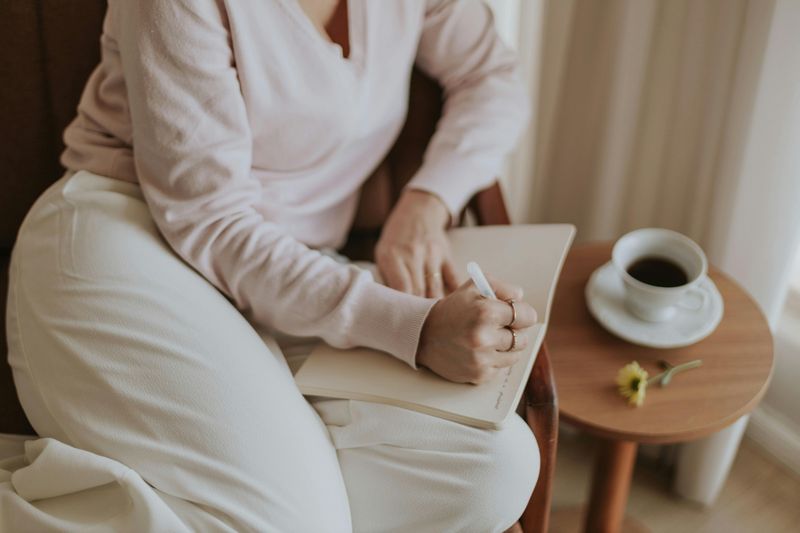
Everyone has those odd little rituals that help them feel safe and calm in a chaotic world. Some people talk to their plants, while others need to check the lock three times before bed. These quirky behaviors might seem strange to outsiders, but they provide real comfort and a sense of control when life feels overwhelming.
1. Talking to Pets Like They’re Human Babies
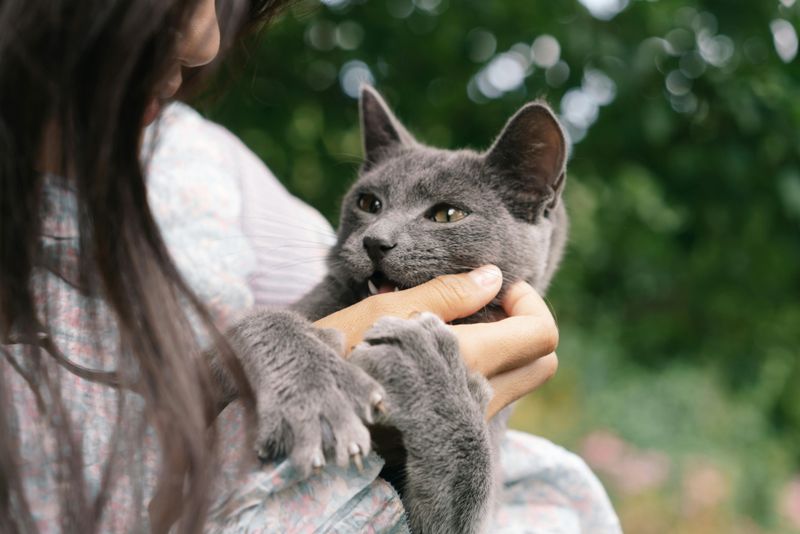
Baby talk isn’t just for infants anymore. Pet owners across the globe find themselves using high-pitched voices and complete sentences when chatting with their furry friends. Your dog probably has no idea what you’re saying about your terrible day at work, but somehow it still feels better to explain it all.
This habit creates emotional warmth and makes pets feel like true family members. The act of verbalizing feelings, even to a non-judgmental audience, helps process emotions. Plus, your cat’s silent stare somehow feels like the best therapy session ever.
2. Belting Out Songs in Private Spaces

Shower concerts and car karaoke sessions are sacred moments of pure freedom. Nobody’s judging your pitch, nobody’s critiquing your song choices, and you can finally hit those high notes without embarrassment. Water droplets or windshield wipers become your backup dancers in these private performances.
Singing releases endorphins and reduces stress hormones in your body. The acoustics of a bathroom or the enclosed space of a vehicle create a safe bubble for self-expression. Even if you sound nothing like your favorite artist, these moments provide genuine joy and relaxation.
3. Having Full Conversations with Inanimate Objects
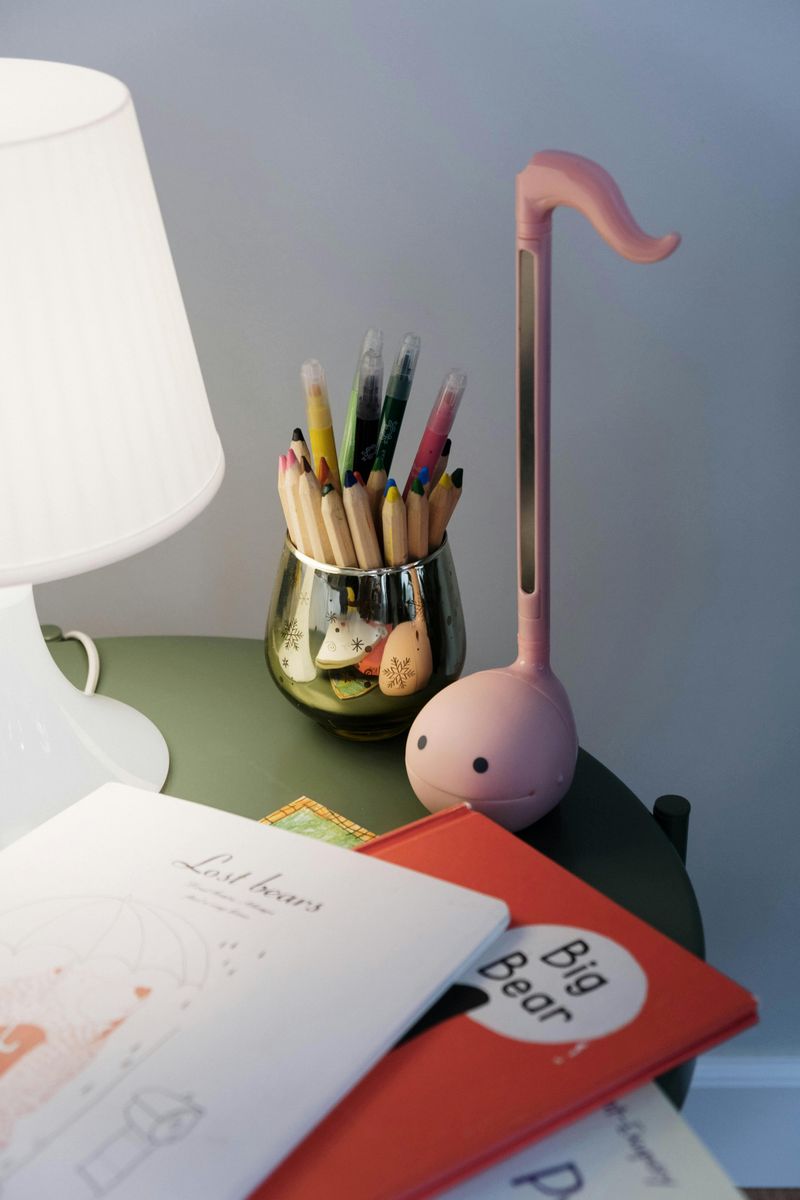
Your coffee maker gets a cheerful good morning. Your computer receives stern warnings when it acts up. Your phone hears your frustrations when apps won’t load fast enough. Talking to objects that can’t possibly respond might sound silly, but it adds personality to mundane daily routines.
This quirky behavior helps people feel less alone during solitary moments. Verbalizing frustrations or gratitude, even to things without ears, provides emotional release. Did you know? Studies show that naming objects increases attachment and care, which is why people treat their cars better when they’ve given them names.
4. Inventing Excuses to Avoid Social Plans

Sometimes the couch is just too comfortable, and socializing feels like climbing Mount Everest. So out comes the arsenal of creative excuses: sudden headaches, forgotten appointments, or mysterious family obligations. These little white lies protect precious alone time when social batteries run dangerously low.
Introverts especially rely on this habit to maintain mental health boundaries. While honesty is ideal, sometimes people need gentle escape routes from overwhelming situations. The comfort comes from knowing you’ve secured guilt-free time to recharge in your safe space, even if it required a tiny fib.
5. Pretending Not to Notice Acquaintances in Public

You spot someone you vaguely know across the grocery store, and suddenly your shoelaces become incredibly fascinating. Eye contact is carefully avoided, and you develop a sudden intense interest in cereal boxes. This strategic social invisibility saves everyone from awkward small talk when neither party really wants to chat.
Many people find comfort in controlling their social interactions this way. Unexpected encounters can feel draining, especially when you’re unprepared mentally. The relief of successfully avoiding an awkward exchange provides genuine comfort, even if it requires temporary ninja-level stealth skills around the produce section.
6. Applauding When Airplanes Land Safely

Wheels touch the runway, and suddenly the cabin erupts in spontaneous applause. Some passengers find this ritual comforting, celebrating the successful completion of defying gravity for hours. Critics might roll their eyes, but for nervous flyers, clapping releases tension built up during the journey.
This habit stems from genuine relief and appreciation for the crew’s expertise. In some cultures, it’s more common than others, creating interesting reactions from international travelers. Whether you join in or sit silently, there’s something oddly reassuring about collective celebration of safe arrival after soaring through the sky.
7. Hoarding Plastic Bags and Mystery Cables

That kitchen drawer stuffed with grocery bags and random cords serves a sacred purpose. You might need exactly that bag or cable someday, and then who’ll be laughing? This collection grows steadily, becoming a tangled museum of just-in-case items that rarely see actual use.
The comfort comes from feeling prepared for unknown future scenarios. Throwing away something you might eventually need feels wasteful and anxiety-inducing. Fun fact: The average household has at least seven mystery cables whose original devices have long since disappeared, yet they remain treasured just in case.
8. Waving at Random Car Horn Honks

A horn blares somewhere nearby, and your hand automatically shoots up in a friendly wave. Maybe they were honking at you, maybe they weren’t, but acknowledging it feels safer than ignoring a potential greeting. This reflexive response prevents the anxiety of wondering if you just snubbed someone.
People find comfort in appearing friendly and avoiding social mistakes. The automatic wave requires zero thought but provides peace of mind. Even if the honk was meant for someone else entirely, your cheerful gesture harms nobody and might even brighten a stranger’s day unexpectedly.
9. Apologizing When Others Bump Into You

Someone crashes directly into you, and somehow your mouth automatically says sorry. Logic doesn’t apply here—you’re clearly the victim of the collision, yet the apology escapes before your brain can stop it. This backwards reaction happens so frequently that it’s become a running joke about overly polite people.
The habit stems from conflict avoidance and desire for social harmony. Saying sorry diffuses potential tension immediately, even when you’re blameless. This automatic response provides comfort by smoothing over awkward moments and preventing confrontation, which many people find far more uncomfortable than taking undeserved blame.
10. Saying You Too at Inappropriate Moments

The waiter says enjoy your meal, and you confidently respond with you too. Immediately, your brain registers the error, but it’s too late—the words have escaped. These autopilot responses create hilariously awkward moments that haunt you for days afterward, replaying during quiet moments when you’re trying to sleep.
This habit happens because our brains create social scripts for efficiency. When someone offers a pleasantry, the automatic response kicks in before logic checks if it makes sense. The comfort comes afterward, knowing everyone makes these mistakes and that shared human awkwardness connects us all.
11. Checking Locked Doors Multiple Times
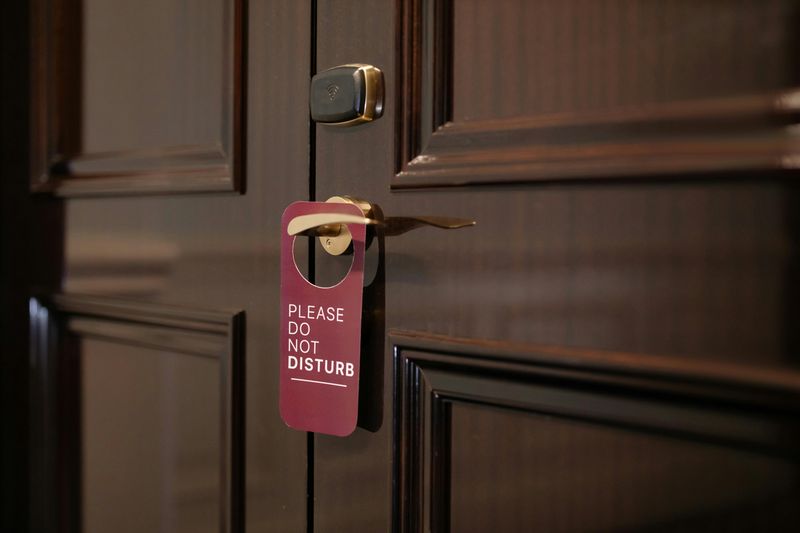
You locked the door already. You definitely locked it. But what if you only thought you locked it and didn’t actually turn the mechanism? Better check one more time. And maybe once more after that, just to be absolutely certain before driving away or settling into bed.
Repetitive checking provides relief from intrusive what-if thoughts that create anxiety. Each verification brings temporary peace, even though logically you know the door was secure after the first check. For some, this habit borders on compulsion, but for many, it’s simply a comforting ritual that ensures safety.
12. Sniffing Food Before Eating It

Even when food is clearly fresh, the nose automatically swoops in for a quality check. Milk gets sniffed. Leftovers receive thorough nasal inspections. Even restaurant meals sometimes get a subtle smell test before the first bite. This instinctive behavior connects to ancient survival mechanisms about avoiding spoiled food.
The ritual provides reassurance and control over what enters your body. Smell is powerful for detecting problems our eyes might miss. While modern expiration dates make this habit less necessary, the comfort of personally verifying safety through your own senses remains deeply satisfying and hard to abandon.
13. Creating Elaborate Bedtime Rituals

Pillows must be arranged in precise order. Blankets need specific positioning. The room temperature requires exact adjustment. One foot might stay outside the covers while the rest stays tucked in. These nightly ceremonies can’t be skipped without risking terrible sleep or feeling completely off-balance.
Sleep rituals signal to your brain that rest time is approaching. The predictability brings comfort and security in an unpredictable world. Fun fact: Many people develop these habits in childhood and carry them into adulthood, finding that disrupting the routine genuinely affects sleep quality and mood the next day.
14. Narrating Your Actions Out Loud When Alone
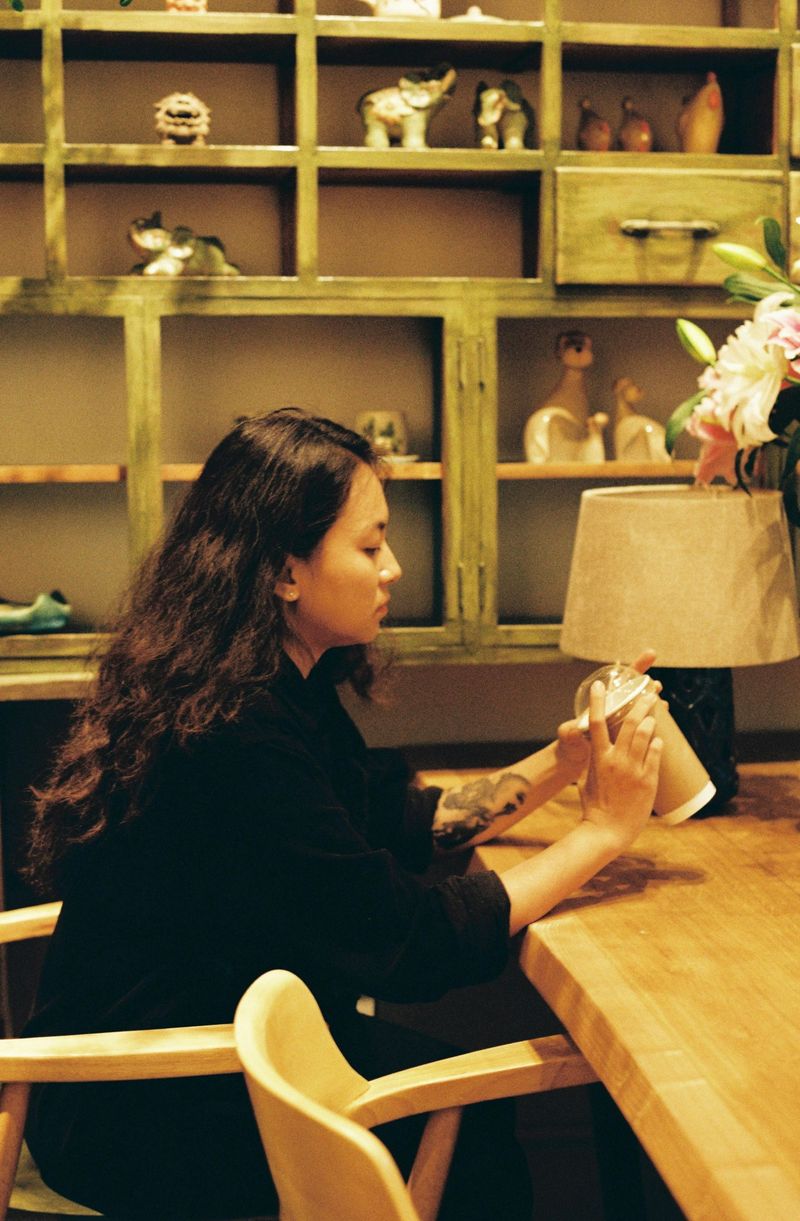
Now I’m putting the keys on the hook. Time to start the coffee. Where did I put my phone? This running commentary accompanies solo activities, turning mundane tasks into narrated adventures. Your empty apartment becomes an audience as you verbalize every action and thought.
Speaking aloud helps with memory and focus, making tasks feel more intentional. The sound of your own voice provides companionship during lonely moments. Many people find this habit slightly embarrassing if caught, but it genuinely helps organize thoughts and makes solitary time feel less isolating and more purposeful.
15. Collecting Small Objects With No Purpose
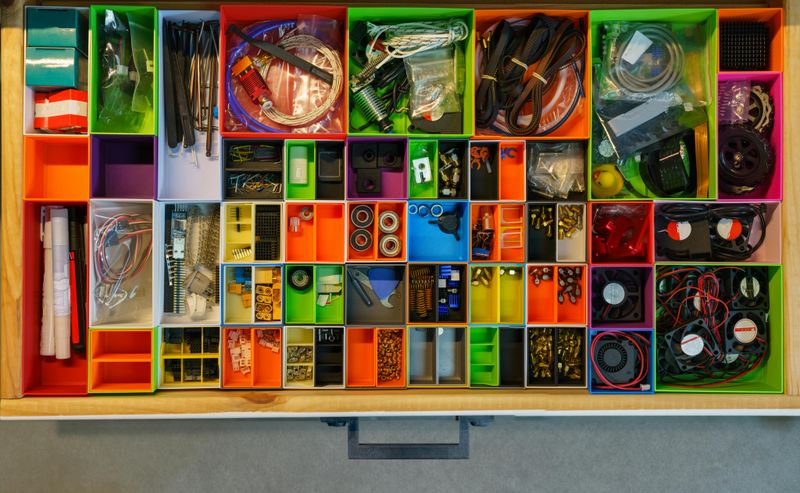
Smooth pebbles from beaches. Interesting buttons. Pretty bottle caps. Ticket stubs from memorable events. These tiny treasures accumulate in drawers and boxes, serving no practical function except triggering pleasant memories. Each object carries a story, even if nobody else understands why that particular rock matters so much.
Collecting provides comfort through physical connections to positive experiences. Touching these objects brings back feelings from special moments. While others might see clutter, collectors see a carefully curated archive of joy. The habit satisfies deep human needs for preservation, connection, and creating personal meaning from ordinary things.

Comments
Loading…